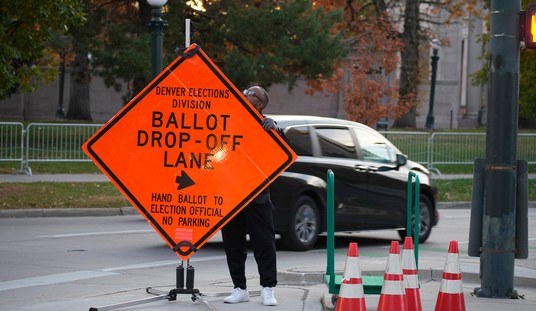While contemplating his move from the Republican Party to the Democratic Party, Sen. Arlen Specter was promised not only that he would be allowed to keep his committee assignments, but that he would keep the same level of seniority as though he had been first elected as a Democrat back in 1980.
Sorry, Arlen. Only real Democrats get to be senior committee members.
Complaints by rank-and-file Democrats prompted Senate Majority Leader Harry Reid to go back on his word and Specter is now the most junior Democratic member of the five committees on which he serves: Appropriations, Judiciary, Veterans Affairs, Environment and Public Works, and Special Aging. Apparently the seniority question will be revisited after the 2010 election.
Specter rankled many Democrats with his stated opposition to their legislative priorities, including the Employee Free Choice Act (EFCA) — legislation that would make it easier for workers to form unions — President Obama’s budget, and his nominee to head the Justice Department’s Office of Legal Counsel, Dawn Johnsen.
“But if he shows us he’s with us on health care, on Supreme Court nominees, on EFCA, some other stuff, then maybe he gets a top or senior spot on some committees in 2011,” the aide said.
In other words, they don’t trust him.
Specter is far from being the first side-switcher to be treated thusly by his new teammates. Benedict Arnold, a brilliant officer in the Continental Army during the American Revolution, became bitter because he felt he was not promoted quickly enough and for being court-martialed and found guilty of using the army for his own personal reasons. He also faced tremendous personal debt. What’s a sore loser to do? Switch to the other side. Arnold demanded £20,000 in return for delivering West Point to the British. The plot failed when one of his conspirators was captured and Arnold was only paid £6,000.
He eventually settled in London after the war, but didn’t find the greatness and respect he so craved. Never really trusted by the British, he wasn’t given the important military command he was promised and though he started several business concerns, died as a virtual unknown with little to his name. This sums his motives up rather well:
In the end, Benedict Arnold’s “moral failure lay not in his disenchantment with the American cause” for many other officers returned to civilian life disgusted with the decline in republican virtue and angry over their failure to win a guaranteed pension from Congress. Nor did his infamy stem from his transfer of allegiance to the British side, for other Patriots chose to become Loyalists, sometimes out of principle but just as often for personal gain. Arnold’s perfidy lay in the abuse of his position of authority and trust: he would betray West Point and its garrison “and if necessary the entire American war effort” to secure his own success. His treason was not that of a principled man but that of a selfish one, and he never lived that down. Hated in America as a consort of “Beelzebub … the Devil,” Arnold was treated with coldness and even contempt in Britain. He died as he lived, a man without a country.
Then there’s the case of George Koval, a U.S.-born Soviet spy who managed to steal critical nuclear secrets for the Soviets back in the 1940s. Despite his assistance,
Koval’s postwar life in Russia was apparently uneventful. “I’m afraid that you will be disappointed to learn that I did not receive any high awards upon my return,” he wrote to Kramish in May 2003. “Life in the Soviet Union was such that my activities, instead of bringing me awards, had an opposite, very strong negative effect on my life.” When he left the Soviet military in 1949, he wrote, “I received discharge papers as an untrained rifleman in the rank of private — with nine years of service in the armed forces!” This lackluster record, coupled with his academic and foreign background, “made me a very suspicious character,” he wrote, especially amid “the terrible government-instigated-and-carried-out anti-Semitic campaign, which was at its peak in the early fifties.” He sought work as a researcher or teacher, but “no one wanted to risk hiring me” — partly, he believed, because someone with his record might be an American spy.
[…]
During Koval’s decades as an academic in Moscow, the fact that his service to his adopted homeland went unacknowledged rankled him. In 2003 he wrote to Kramish that he had received a minor medal after he returned to Russia, but bigger rewards “went to the career men.” Fuchs “got his award, not a very high-ranking one (and was disgruntled about that) only when he was already released and was working as a physicist” in East Germany. And “only quite recently, when Lota began digging in the archives and brought my story to light, was I presented with a rarely awarded medal” for service in foreign intelligence, at a closed ceremony.
Still, despite the perceived slights and his uneasy return to Soviet life, George Koval ended his email on a stoic note: “Maybe I should not complain (and I am not complaining — just describing how things were in the Soviet Union at that time), but be thankful that I did not find myself in a Gulag, as might well have happened.”
Neither Arnold nor Koval was known to have ever expressed regret for his respective betrayal, but neither reaped the rewards he thought due him and they were both treated warily and with some degree of contempt by those they served with their betrayals.
According to the Smithsonian article cited above, Koval believed in communism to the end, which explains his complicity as a spy. On the other hand, Arnold was bitter because he didn’t get what he thought was his due from his compatriots and switched sides in order to further his own interests. Sound familiar?
But regardless of the reasons, neither Koval nor Arnold found complete acceptance or a utopian existence as a result of his perfidy. The fact that Arlen Specter actually expected the Democrats to give him what he thought was his “due” speaks more to his penchant for navel-gazing than any sense of reality.
The moral of this story? If you’re going to play traitor, go in with eyes wide open. And don’t expect too much in the way of gratitude or trust from those you aided. Because if you betrayed your own so easily, who’s to say you won’t betray your new friends as well?









Join the conversation as a VIP Member